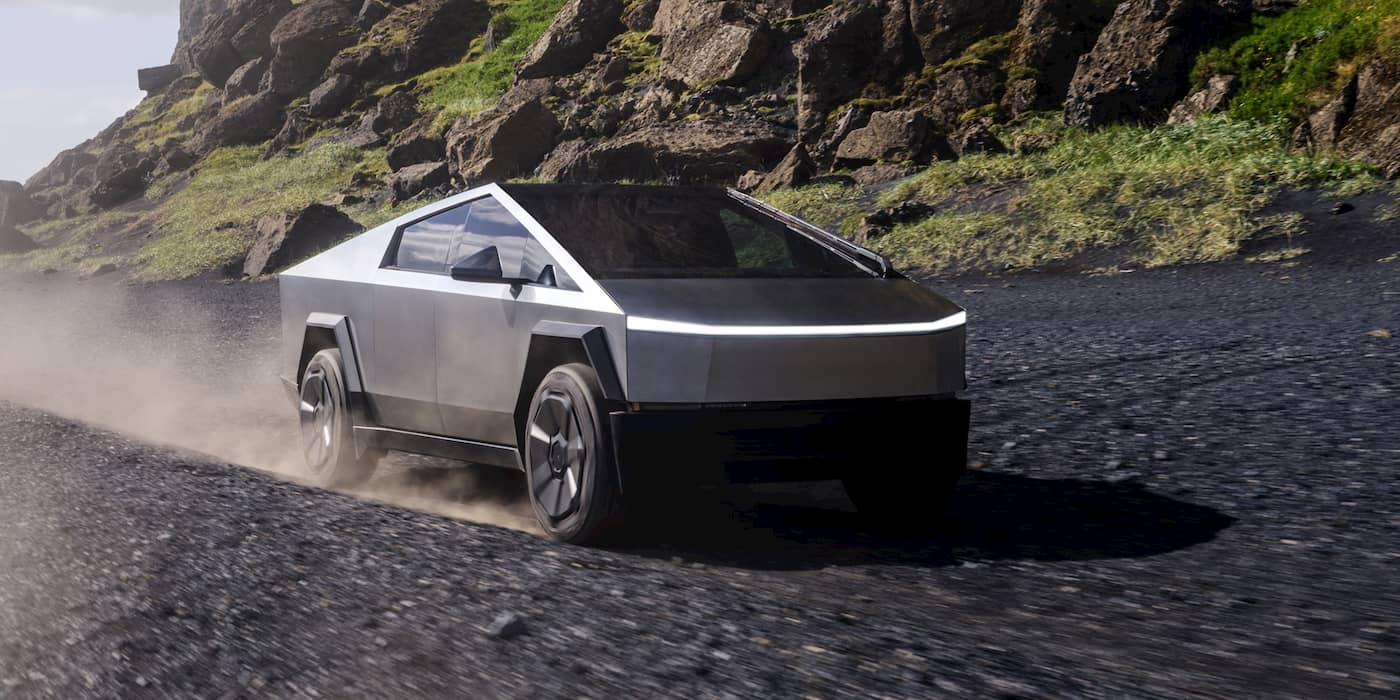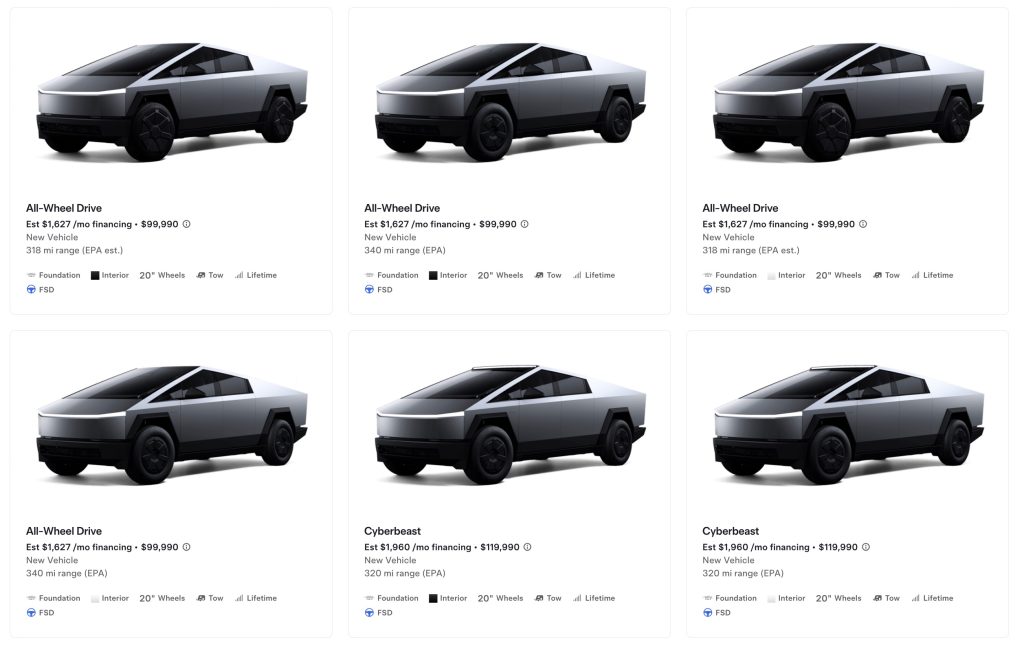
Tesla is turning some of its Foundation Series Cybertrucks into regular Cybertrucks to sell them and sending hundreds of US Cybertrucks to be homologated in Canada as it is having issues selling them in the US.
There have been several signs lately that Tesla has worked through its Cybertruck reservation backlog and it is now having some demand issues.
Earlier this month, we reported that Tesla has told employees working on the Cybertruck production line at Gigafactory Texas to take a few days off.
Tesla also reduced lease pricing and directly discounted the Cybertruck by adding it to its referral program.
There have been many several Cybertrucks in inventory available for immediate delivery, including many Foundation Series Cybertrucks:

Foundation Series were the first Cybertrucks produced and meant for reservation holders. Tesla added $20,000 to the price and bundled a bunch of features and accessories together.
In October, Tesla switched production to regular Cybertrucks, which are cheaper, but we now learn that Tesla is still stuck with many Foundation Series trucks.
The automaker is now even planning on de-Foundation Series some Cybertrucks, according to a source familiar with the matter and documents obtained by Electrek.
On top of the $20,000 bundle of features and accessories that Tesla is adding to the Foundation Series Cybertruck, the vehicles also have special laser etched badging outside of the vehicle and Foundation badging inside on the dash.
Tesla is sending the Cybertrucks to service and collision centers around the US to have those removed in order to sell them as regular Cybertruck for $20,000 less.
Sources familiar with the matter also confirmed that Tesla plans to modify over 800 Cybertrucks to homologate them for the Canadian market and ship them to Canada, where Tesla believes they have a better chance to sell them.
All these efforts are putting more pressure on Tesla’s service and collision center workforce – resulting in longer wait times for owners.
Electrek’s Take
The Cybertruck quickly became the best-selling electric pickup truck in the US. That’s an impressive feat, but I think many Tesla fans were too quick to call the vehicle program a success based on that fact.
Cybertruck achieved that thanks to years of pent-up demand and over a million reservations. Then, it went through its entire reservation backlog in less than a year and with about only 40,000-50,000 deliveries.
Top comment by Dave
The original 2019 pricing estimates vs. the 2024 MSRP was too big of a delta for reservation holders to overcome. It’s the #1 reason why 97% of reservation holders never committed to a purchase.
The future for the Cybertruck will be interesting to watch.
I think Tesla is clearly having some issues selling the Cybertruck in the US now and didn’t properly gage the demand for the Foundation Series.
Next year will be the real test for the Cybertruck program. We will see how it fair in the market without years of backlog.
Tesla will have the cheaper $61,000 RWD Cybertruck, which will help with demand, but I still think Tesla might have issues having enough demand to sell 250,000 per year, which was Tesla’s goal. Musk even suggested that it could go up to 500,000 per year, but that sounds impossible now.
Electric vehicles are best powered by renewable energy, like solar power and there’s no better solar power than the one you own. If you want to make sure you’re finding a trusted, reliable solar installer near you that offers competitive pricing, check out EnergySage. EnergySage is a free service that makes it easy for you to go solar – whether you’re a homeowner or renter. They have hundreds of pre-vetted solar installers competing for your business, ensuring you get high-quality solutions and save 20 to 30% compared to going it alone. Plus, it’s free to use and you won’t get sales calls until you select an installer and you share your phone number with them.
Your personalized solar quotes are easy to compare online and you’ll get access to unbiased Energy Advisors to help you every step of the way. Get started here.
FTC: We use income earning auto affiliate links. More.







Comments